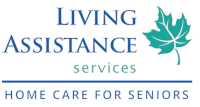Bladder health isn’t something many people think about on a regular basis unless it becomes a problem and begins to have a negative impact on their quality of life. Unfortunately, this is quite common—bladder issues often occur later in life and may include incontinence, urinary retention (an inability to fully empty your bladder) or frequent urinary tract infections (UTIs). Bladder issues are more common in women, people with diabetes or kidney stones, individuals living with obesity, and anyone with a history of bladder health issues in their family. Additionally, conditions such as Alzheimer’s Disease, Multiple Sclerosis (MS) or Parkinson’s Disease may lead to incontinence, as can spinal cord damage, prostate surgery or having a stroke.
While bladder issues can be uncomfortable (and sometimes embarrassing) for seniors, they can also lead to serious health problems. For example: UTIs can cause confusion and lead to secondary infections or even septicemia. Knowing the risks and the negative impact bladder issues can have on a senior’s well-being, we’d like to share some guidance that promotes bladder health and keeps seniors feeling their best. If you have any questions or would like to know more about homecare services for seniors in Toronto, please contact us. We’d be glad to hear from you!
Tips to support a healthy bladder
Keeping your bladder healthy as you age is important, and there are easy steps you can take each day to support this goal. If you’d like to know more or if you have concerns about your aging loved one’s bladder health, we suggest speaking with your family doctor. In the meantime, here’s some guidance to share with your aging loved one. Remember—our caregivers can help your aging loved ones follow this advice in order to support their health and well-being. This is done through gentle reminders, encouragement and other care practices.
- Drink plenty of water and other low-sugar fluids. Staying hydrated is key to a healthy bladder!
- During the day, don’t go more than 3-4 hours without urinating. Holding your bladder is unhealthy and should be avoided!
- Relax, slow down and make an effort to completely empty the bladder each time you visit the washroom. Leaning slightly forward can help.
- Avoid or limit your intake of sugary drinks as well as acidic beverages (tomato juice, orange juice, etc). Sugary and acidic foods may make bladder problems worse.
- Limit your intake of alcohol and caffeine. Believe it or not, smoking can also have a negative impact on your bladder health!
- If you’re constipated, manage your symptoms at home or seek treatment. Straining to void your bowels can make your bladder issues worse.
- Wear clean, breathable cotton underwear instead of synthetic materials.
- Women must remember to wipe from front to back (not back to front) to avoid the transfer of bacteria (this may cause a UTI or other infection).
- Shower regularly and pay attention to personal hygiene (our caregivers can provide a great deal of support in this regard).
In addition to following this guidance, it’s important to speak to a doctor about any significant bladder health issues (even if it’s a small but consistent issue with bladder incontinence). There are a number of medical interventions available including medication, Botox injections, nerve stimulation treatments, surgical options and more. Personalized treatment is ideal, so speak to a medical professional as soon as possible. You may be amazed how effectively these treatments can improve one’s quality of life!
Contact us to learn more about homecare services in Toronto
If you’re interested in learning more about high quality homecare services in Toronto and the surrounding areas, please contact us. Our team would be glad to answer your questions, discuss your family’s needs and provide personalized recommendations. We can also provide a detailed quote for having a Personal Support Worker (PSW) support your aging loved one on a weekly, daily, part-time or full-time basis. Our caregivers can also provide respite and convalescent care as needed. Thanks for reading, and please share this blog post with anyone who may find it helpful.

